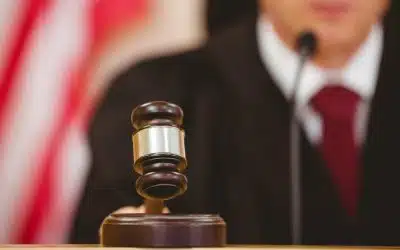When you are facing criminal charges, you may be frustrated and concerned about how to effectively defend yourself. There are defenses available in many cases that an experienced Missouri criminal defense lawyer may be able to raise on your behalf. For example, you can claim you shouldn’t be held responsible for the crime due to certain circumstances or that you weren’t involved in the alleged crime at all.
Common criminal defense strategies are, actually, legal arguments or actions used to expose potential flaws of the legal procedure or doubts regarding the elements of the case. It’s crucial to have a defense strategy in place before entering the courtroom.
Specific Defense Strategies and Legal Tactics

An effective defense strategy often hinges on scrutinizing the prosecution’s evidence. For instance, a thorough cross-examination can reveal inconsistencies in witness testimonies, casting doubt on their credibility. Additionally, a defense attorney might file a motion to suppress evidence if it was obtained illegally, violating the defendant’s Fourth Amendment rights. In Mapp v. Ohio, the U.S. Supreme Court ruled that evidence obtained in violation of the Fourth Amendment could not be used in state law criminal prosecutions.
Another tactic involves the presentation of an alibi. Demonstrating that the defendant was elsewhere at the time the crime was committed can be powerful exculpatory evidence. This strategy often includes witness statements, video footage, or digital records like GPS data. For example, in the case of People v. Lemmon, the court acknowledged the importance of alibi witnesses in establishing a reasonable doubt about the defendant’s guilt.
Expert witnesses can also play a crucial role in criminal defense. Forensic experts, medical professionals, or specialists in various fields can provide testimony that challenges the prosecution’s narrative. In the landmark case of Daubert v. Merrell Dow Pharmaceuticals, Inc., the court outlined the criteria for admitting expert testimony, emphasizing its relevance and reliability.
Lastly, plea bargaining remains a pragmatic strategy in many criminal cases. Negotiating a plea deal can result in reduced charges or lighter sentencing, which might be preferable compared to the uncertainties of a trial. According to the Bureau of Justice Statistics, over 90% of criminal cases are resolved through plea bargains, highlighting their prevalence in the criminal justice system.
Although every case is different, there are some defenses that people use more often in criminal cases.
Gathering Evidence Without Probable Cause
One common defense is to attack the legal validity of a search and/or seizure that led to police collecting evidence in support of the charges against you. For example, the Fourth Amendment protects all Americans from unreasonable search and seizure. Therefore, there are legal standards that police officers must meet before they can pull a vehicle on public roadways, search a driver, or search inside the vehicle.
If police officers fail to observe these legal standards, they may have performed an illegal search and seizure, which, in turn, makes the evidence illegally obtained and therefore inadmissible in any criminal court proceedings. If criminal charges are based primarily on illegally-obtained evidence, then the court or the state may have no choice but to dismiss the charges against you due to a lack of admissible evidence proving your guilt.
Incorrect Witness Testimonies
Another criminal defense strategy is misidentification by the alleged target of the offense or other witnesses. Eyewitness identifications are notoriously unreliable, which can make false accusations even more prevalent. If an individual charged with a crime looks similar to the perpetrator, the witness can easily make a mistake, and that can result in a mistaken identity.
The Accused Person Has an Alibi
In some cases, you can prove that a witness wrongfully identified you by producing an alibi, or evidence that you were somewhere else at the time that the crime was committed. For instance, credit card receipts, surveillance from businesses, homes, or parking lots, or other witnesses who can testify as to your whereabouts on the date and time in question all can constitute alibi evidence.
Defense of Others or Self-Defense
When you are facing some types of criminal charges, such as where your actions caused bodily injuries or even death to another, self-defense may be a viable defense. For instance, if an intruder breaks into your home while armed with a weapon, the law does permit you to take steps to protect yourself and your family through the use of force in some circumstances.
However, bear in mind that the force used to protect yourself or others has to be proportionate to the imminent danger you feared. In other words, one can use as much force as reasonably necessary to remove the threat. Only if an attacker uses deadly force the person defending can employ deadly force to counteract the threat.
Crime Committed under Duress
Duress is another defense that may be applicable in your criminal case. If you committed a crime because another person threatened you or a loved one with injury or death, you may be able to use duress as a defense. Similarly, if another person held a weapon or firearm on you to coerce you into committing a criminal offense, duress may be a defense that you can raise in your case.
False Confessions
In some cases, a law enforcement officer may coerce an individual to confess to a crime they didn’t commit. In order to achieve that, law enforcement officials may use threats, sleep deprivation, or starvation. Coercing a suspect can be considered police misconduct. That is just one of the reasons why it’s beneficial to have appropriate legal counsel by your side from the start.
Providing Reasonable Doubt
Criminal prosecution has to prove the defendant is guilty of a certain criminal act beyond a reasonable doubt. That is a legal standard that has to be achieved when establishing guilt in criminal cases. In other words, physical evidence has to be so overwhelming that the defendant committed the crime he or she is accused of, and there must be no other possible explanation of what happened.
The defendant is innocent until proven guilty. If the defendant’s criminal defense attorney can prove that the prosecution didn’t prove guilt beyond a reasonable doubt, the defendant may be acquitted.
Contact Missouri DWI & Criminal Law Center Today
If you or someone you love is accused of a crime, retaining the legal services of a criminal defense attorney can be very beneficial to the outcome of the case. Knowledgeable criminal defense lawyers have to carefully analyze the case, police procedure, and the obtained evidence and try to find holes or ways to discredit the evidence.
You can try to come up with a criminal defense strategy on your own. However, don’t forget it’s nearly impossible to defend yourself on your own in this situation.
At Missouri DWI & Criminal Law Center, our objective is to provide you with client-focused, experienced legal advice, and representation at every stage of your criminal proceedings. We are here to advocate on your behalf and protect your rights. Be sure to contact our law firm at 816-322-8008 or fill out the online information form located here.






